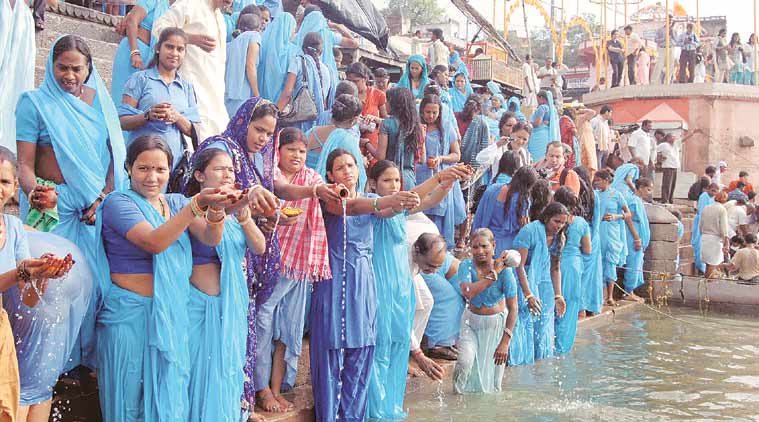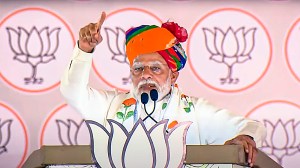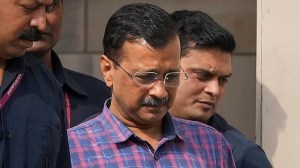- India
- International
Govt sets March ’16 deadline to end manual scavenging in state
According to the latest caste census data, 63,713 households in Maharashtra have manual scavengers.
 In this file picture, liberated manual scavengers from Rajasthan pray on the banks of the Ganga in Varanasi. (Express Photo)
In this file picture, liberated manual scavengers from Rajasthan pray on the banks of the Ganga in Varanasi. (Express Photo)
The Maharashtra government has set March 2016 as the deadline to end manual scavenging in the state.
Chief Minister Devendra Fadnavis has directed officials to ascertain the exact number of manual scavengers and prepare alternative employment plans to end the practice by March. The social justice and water and sanitation departments have been told to look into the matter.
The state has the highest number of households engaged in manual scavenging.
According to the latest caste census data, 63,713 households in Maharashtra have manual scavengers. Madhya Pradesh, Tripura, Uttar Pradesh and Karnataka are some other states that still have the practice.
Fadnavis said, “Maharashtra was the first to raise concern over manual scavengers. Various cleanliness schemes were undertaken but manual scavenging continues in some parts of the state.”
[related-post]

The state administration is stressing the “toilet for every household” and providing incentive of up to Rs 12,000 for construction of toilets in rural Maharashtra.
This in turn is expected to bring down the number of manual scavengers.
A senior official said, “Generally, manual scavengers were from a community representing dalits. The socio-economically backward were expected to do such menial jobs. Over the years, there have been reforms and protests over manual scavengers. Today, the biggest challenge which still remains in the employment of manual scavengers to clean the human excreta along the railway tracks.”
In rural Maharashtra, 42 per cent households do not have toilets. A major campaign for community toilets undertaken 15 years ago did not succeed.
In almost 25,000 drought-prone villages, lack of running water posed a hurdle to the success of the campaign.
Individuals continued to prefer open fields to community toilets.
In view of the Swachh Bharat Abhiyan, and the directive to put an end to manual scavenging, the state government has decided to promote eco-friendly toilets both in urban and rural Maharashtra.
Fadnavis said, “It is demeaning for a human being to carry human excreta. We have to ensure toilets are built in rural landscapes to phase out manual scavengers.”
Must Read
Apr 23: Latest News
- 01
- 02
- 03
- 04
- 05






































